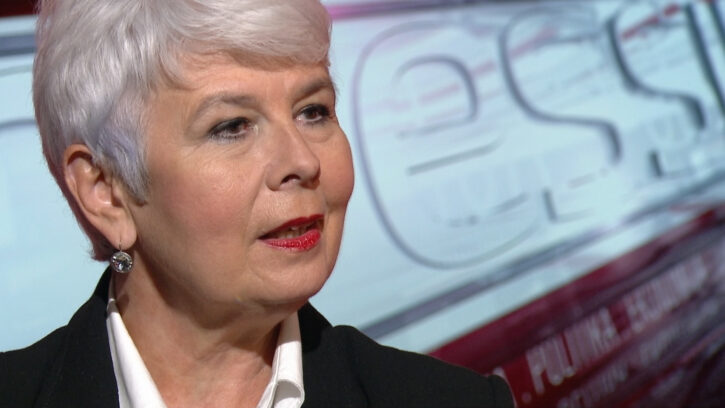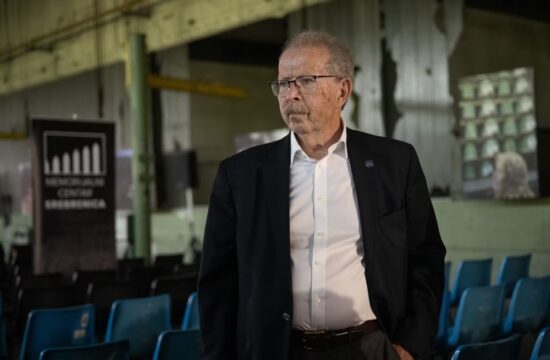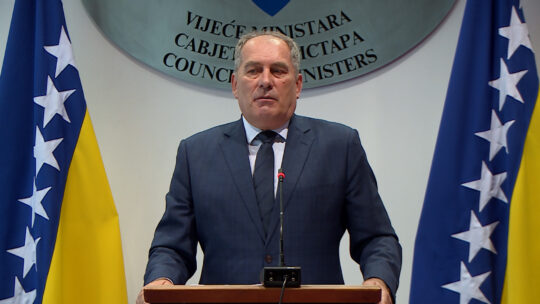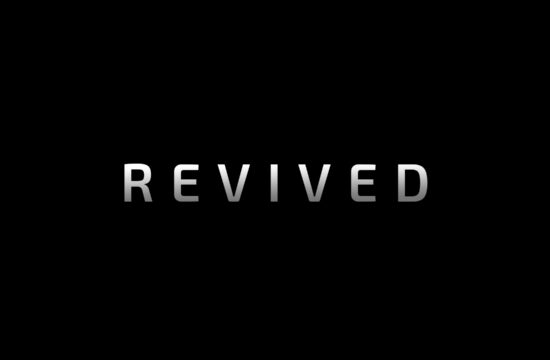
Commitment to friendship and mutual cooperation must be proved with actions not only words, and cooperation between Croatia's and Bosnia's leaderships is almost non-existent, former Prime Minister of Croatia Jadranka Kosor said in an interview with N1.
“I believe that, like love, a friendship must be proved on a daily basis, even if it is between two countries. Commitment to friendship and cooperation between two countries must be proved with actions not only with words. Daily cooperation between the leaderships of Croatia and Bosnia, of their two governments, is almost non-existent,” Kosor said in N1's ‘Pressing’ current affairs programme.
She served as Croatia's PM from 2009 to 2011 and was a senior official of the currently ruling HDZ party. During her term, Kosor said, she was trying to maintain a fair relationship with the HDZ BIH, a sister party in Bosnia.
“I paid attention to the fact that these were the sister parties in two different countries, that Bosnia and Herzegovina is our neighbour, a different state. I paid a lot of attention that any of my gesture addressed to the neighbouring country is not taken as patronising, like positioning as someone who is above, who is stronger, more powerful,” said Kosor.
Commenting on the election of Zeljko Komsic for the post of the Croat member in Bosnia's tripartite Presidency, which the leading Croat party – the HDZ BiH disputes and call Komsic illegitimate representative, Kosor said that HDZ BiH leader and previous winner in the Presidency, Dragan Covic, was elected in line with the same Election Law.
“If he was elected in line with the law, regardless of all efforts to change it, if he was elected equally and in line with the same principle and law as Mr Covic, and he is, then he is. We in Croatia shouldn't act as judges here. Three constituent peoples should decide on that and Croatia should help,” she said.
Asked to comment on recent Komsic's address before the United Nations General Assembly, where he said that Bosnia's neighbours are sometimes causing destabilisation in the country, the former official said she would not fully agree but that there were some statements that were badly received in Bosnia.
“I think that it matters to every Croatia's official that Bosnia and Herzegovina is a stable country and that we have good relations,” she underlined.

As for the statements of Croatian President Kolinda Grabar-Kitarovic about the presence of militant Islam in Bosnia, Kosor said she would have called the President for talks, if she were in Bosnian Presidency, and try to solve the tensions through dialogue.
Noting that her communication with the Islamic Community in Croatia was excellent, she mentioned an event when she was acting as the Minister for Family and Veterans’ Affairs.
“As the Minister of Family, I had initiated one huge housing project for poor and old people, particularly in the part of Croatia bordering Bosnia and Herzegovina, inhabited by extremely poor people, mostly Muslims. I built a facility there and when I arrived for its opening as the Minister for Family, Veterans’ Affairs and Intergenerational Solidarity I received one of the most beautiful recognitions in my life – I received a Quran and hijab as a gift,” Kosor said.
According to her, the politicians of today should work more on cooperation.
“Where do you see new ideas on cooperation here? There are absolutely none. I think that's a result of some sort of political cowardice,” she assessed.
She also touched upon the upcoming presidential election in Croatia, noting that the votes of Bosnian Croats will play an important role.
“I don't think that all votes from Bosnia and Herzegovina will go to Grabar-Kitarovic (current President who will run for the post again). In the previous elections, the votes from the diaspora were crucial,” Kosor concluded.




